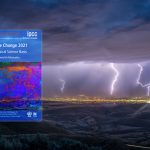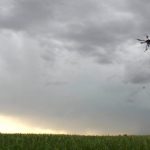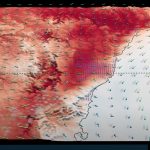 August 9, 2021 6:00 pm
Published by Climate Extremes
August 9, 2021 6:00 pm
Published by Climate Extremes
Australian researchers in the ARC Centre of Excellence for Climate Extremes have made major contributions to the 2021 IPCC Working Group 1 report, through the authorship of the report, review and the many scientific papers cited in the report.
 August 2, 2021 2:54 pm
Published by Climate Extremes
August 2, 2021 2:54 pm
Published by Climate Extremes
Climate change is affecting the amount of water evaporating (from soils and surfaces) and transpiring (evaporating through plant leaves) from the land surface. Trends derived from DOLCE V3 show clear increases in ET since 1980 over the majority of the Earth’s surface.
 July 29, 2021 10:32 am
Published by Climate Extremes
July 29, 2021 10:32 am
Published by Climate Extremes
Kim Reid offers a useful list of common unspoken knowledge for postgraduate students in the climate sciences. Hopefully, she says, this will save you some time and mistakes in the future.
 July 28, 2021 2:43 pm
Published by Climate Extremes
July 28, 2021 2:43 pm
Published by Climate Extremes
Irrespective of tipping points, climate change adaptation efforts will be less costly and disruptive to society – and will stand a better chance of success – if warming can be limited to 1.5°C rather than 2°C or higher. We therefore in no way advocate for policies that forgo pursuing the ambition to limit global warming to 1.5°C, regardless of whether that target remains feasible or not.
 July 19, 2021 4:05 pm
Published by Climate Extremes
July 19, 2021 4:05 pm
Published by Climate Extremes
CLEX researchers and colleagues combined high-resolution regional climate projections with a process-based hazelnut simulation model to predict future hazelnut yield in Australia.
 July 19, 2021 1:36 pm
Published by Jenny Rislund
July 19, 2021 1:36 pm
Published by Jenny Rislund
The passage of weather fronts over southeast Australia during the spring and summer increases the risk of dangerous fire weather. This project will carry out an analysis of observational data to determine a method for characterising when fronts have passed through southeast Australia.
 July 16, 2021 10:12 am
Published by Climate Extremes
July 16, 2021 10:12 am
Published by Climate Extremes
The overarching goal of the Colorado State University Convective CLoud Outflows and UpDrafts Experiment (C3LOUD-Ex) was to enhance our understanding of deep convective storm processes and how they are represented in numerical models. Pivotal to the experiment was a novel “Flying Curtain” strategy.
 July 14, 2021 2:23 pm
Published by Climate Extremes
July 14, 2021 2:23 pm
Published by Climate Extremes
This study looks at 6 months of under-ice zooplankton observations from the N-ICE2015 expedition from January to June 2015 in the Eurasian sector of the Arctic Ocean north of Svalbard.
 July 14, 2021 1:46 pm
Published by Climate Extremes
July 14, 2021 1:46 pm
Published by Climate Extremes
This research uses Sydney, Australia’s largest city, as a test case for our new configuration of the Weather and Research Forecasting model run at a very high resolution of 800 m with a new urban classification scheme that describes the complexity of Sydney’s built environment.
 July 14, 2021 1:23 pm
Published by Climate Extremes
July 14, 2021 1:23 pm
Published by Climate Extremes
In this study, CLEX researchers and colleagues showed that the North Atlantic sea-surface temperature response to ENSO is nonlinear with respect to the strength of the sea-surface temperature forcing in the tropical Pacific.










